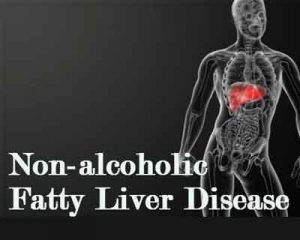- Home
- Editorial
- News
- Practice Guidelines
- Anesthesiology Guidelines
- Cancer Guidelines
- Cardiac Sciences Guidelines
- Critical Care Guidelines
- Dentistry Guidelines
- Dermatology Guidelines
- Diabetes and Endo Guidelines
- Diagnostics Guidelines
- ENT Guidelines
- Featured Practice Guidelines
- Gastroenterology Guidelines
- Geriatrics Guidelines
- Medicine Guidelines
- Nephrology Guidelines
- Neurosciences Guidelines
- Obs and Gynae Guidelines
- Ophthalmology Guidelines
- Orthopaedics Guidelines
- Paediatrics Guidelines
- Psychiatry Guidelines
- Pulmonology Guidelines
- Radiology Guidelines
- Surgery Guidelines
- Urology Guidelines
Breastfeeding longer than 6 months decreases NAFLD risk

US: Mothers who breastfeed for a longer duration, particularly more than 6 months, have a lower risk of non-alcoholic fatty liver disease in mid-life, suggests a new 25-year long study published in the Journal of Hepatology.
Breastfeeding has long been associated with health benefits for women, including lower risks for diabetes, heart disease, and certain cancers. This study, led by Veeral H. Ajmera, Gastroenterology, University of California San Diego, La Jolla, CA, United States, focused on whether longer duration of lactation is associated with reduced risk of NAFLD.
Also Read: Breastfeeding decreases chances and severity of dental caries in children
For the study, the researchers followed 844 women from the from the Coronary Artery Risk Development in Young Adults cohort study for 25 years after they gave birth. They were assessed when they joined the study in 1985 and 1986, surveyed about breastfeeding with any subsequent births, and then examined for fat in their liver at the end of the study using computed tomography.
Key Findings:
- 32% reported nursing for up to a month, 25% said they breastfed for one to six months and 43% reported nursing for longer.
- By the end of the study, the women were 49 years old on average. Fifty-four, or about 6%, had developed NAFLD.
- Women who breastfed babies for at least six months were 52% less likely to develop liver disease than mothers who nursed for less than one month.
"Future studies will be needed to assess if breastfeeding can decrease the severity in NAFLD in women at high risk," Ajmera told to Reuters Health.
More research is needed to confirm the potential for breastfeeding to help prevent liver disease, said Jennifer Yourkavitch of the University of North Carolina, Greensboro.
"But there is a mountain of evidence supporting breastfeeding as beneficial to women's and children's health and it should be promoted and supported," Yourkavitch, who wasn't involved in the study, said by email. "These findings give us another reason to do that."
For further reference log on to https://doi.org/10.1016/j.jhep.2018.09.013

Disclaimer: This site is primarily intended for healthcare professionals. Any content/information on this website does not replace the advice of medical and/or health professionals and should not be construed as medical/diagnostic advice/endorsement or prescription. Use of this site is subject to our terms of use, privacy policy, advertisement policy. © 2020 Minerva Medical Treatment Pvt Ltd